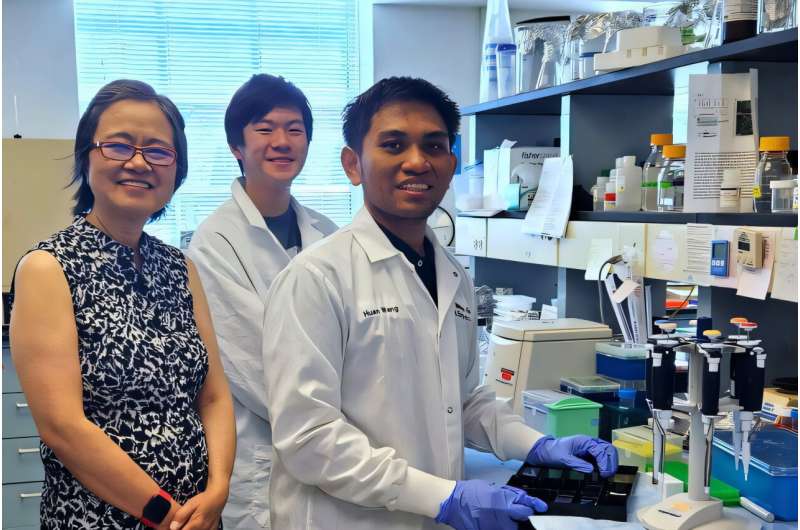With colorectal cancer on the rise in people under 50, researchers at the University of Illinois Urbana-Champaign are looking at the colon’s tiniest inhabitants to reveal causes and potential treatments.
In a study in genetically modified mice, the researchers mimicked the colon environment of humans likely to experience early-onset colitis—the inflammation that often precedes colorectal cancer. The study, “Gut microbiota dysbiosis in a novel mouse model of colitis potentially increases the risk of colorectal cancer,” is published in the American Journal of Physiology-Gastrointestinal and Liver Physiology.
They wanted to understand how microbes in the colon, along with substances they produce during metabolism (metabolites), interact with gene signaling pathways implicated in disease progression.
“When these mice are under stress, they develop more severe colitis and then have a higher risk of developing early-onset colorectal cancer. We found in this study that this higher risk is due to dysbiosis—disruption of the gut microbial community—and the metabolites those microbes produce,” said corresponding author Hong Chen, associate professor in the Department of Food Science and Human Nutrition, part of the College of Agricultural, Consumer and Environmental Sciences at Illinois.
Chen and her colleagues characterized the microbiome of genetically modified mice lacking a specific gene involved in regulating immune response and inflammation. Without this gene, which has been shown to be mutated in early-onset colorectal cancer patients, the mice were more likely to develop colon inflammation similar to Crohn’s disease or ulcerative colitis in humans.
Inflammation favors the growth of certain—usually “bad”—microbes, crowding out their beneficial counterparts. Then, as these problematic microbes respond to the stressful environment of an inflamed colon, they produce chemicals, or metabolites, that can be harmful to the host. That contrasts with microbes in a stable environment, which produce beneficial metabolites.

Comparing the makeup of the microbial community and their metabolites in modified mice versus normal lab mice, the researchers could tell how the microbes react to and, in some cases, exacerbate inflammation.
“In mice with a genetic makeup consistent with early-onset colitis, we found an imbalance between bad, disease-prone microbes and decreased beneficial microbes. This gave us an easily identified signature of dysbiosis that we could associate with colorectal cancer risk,” Chen said.
“We also found some key signature metabolites associated with human colorectal cancer risk in this transgenic mouse model, making it a very good system to study and discover future intervention tools.”
Chen said that identifying which beneficial microbes—and their associated metabolites—decreased in the mice could inspire future studies. Specifically, she and her collaborators plan to test targeted pro- and postbiotics (metabolites produced by beneficial microbes) to offset the bad microbes in an inflamed colon.
“We hope to test both the probiotic as well as the metabolites we identified to find a way to better supplement and intercept this cancer risk,” Chen said.
More information:
Abrory A. C. Pramana et al, Gut microbiota dysbiosis in a novel mouse model of colitis potentially increases the risk of colorectal cancer, American Journal of Physiology-Gastrointestinal and Liver Physiology (2025). DOI: 10.1152/ajpgi.00040.2025
College of Agricultural, Consumer and Environmental Sciences at the University of Illinois Urbana-Champaign
Citation:
Mouse study reveals gut microbe balance may be key factor in early-onset colorectal cancer (2025, August 8)
retrieved 8 August 2025
from https://medicalxpress.com/news/2025-08-mouse-reveals-gut-microbe-key.html
This document is subject to copyright. Apart from any fair dealing for the purpose of private study or research, no
part may be reproduced without the written permission. The content is provided for information purposes only.

